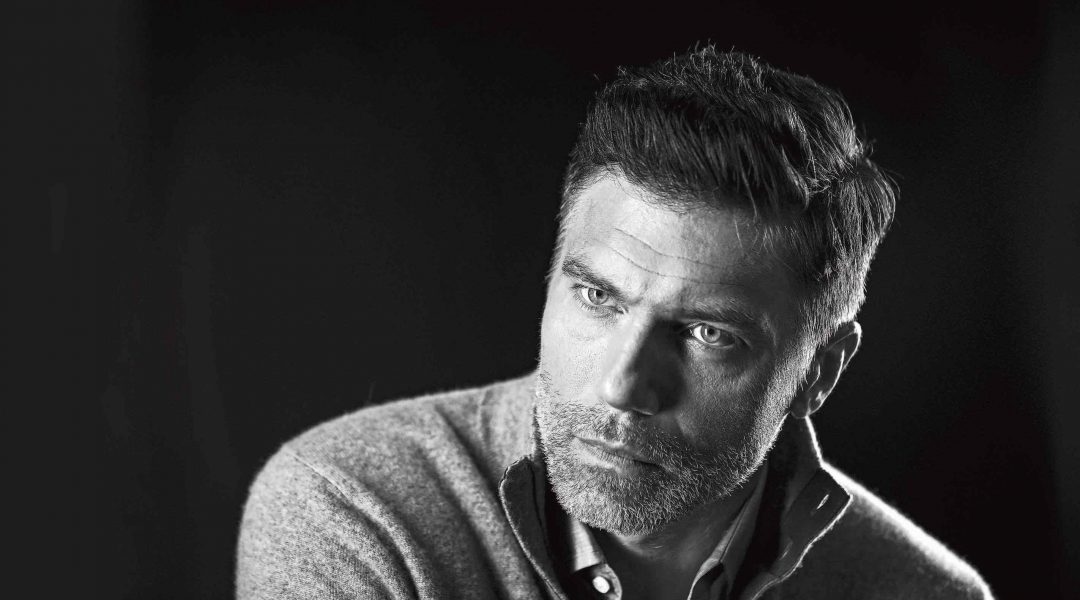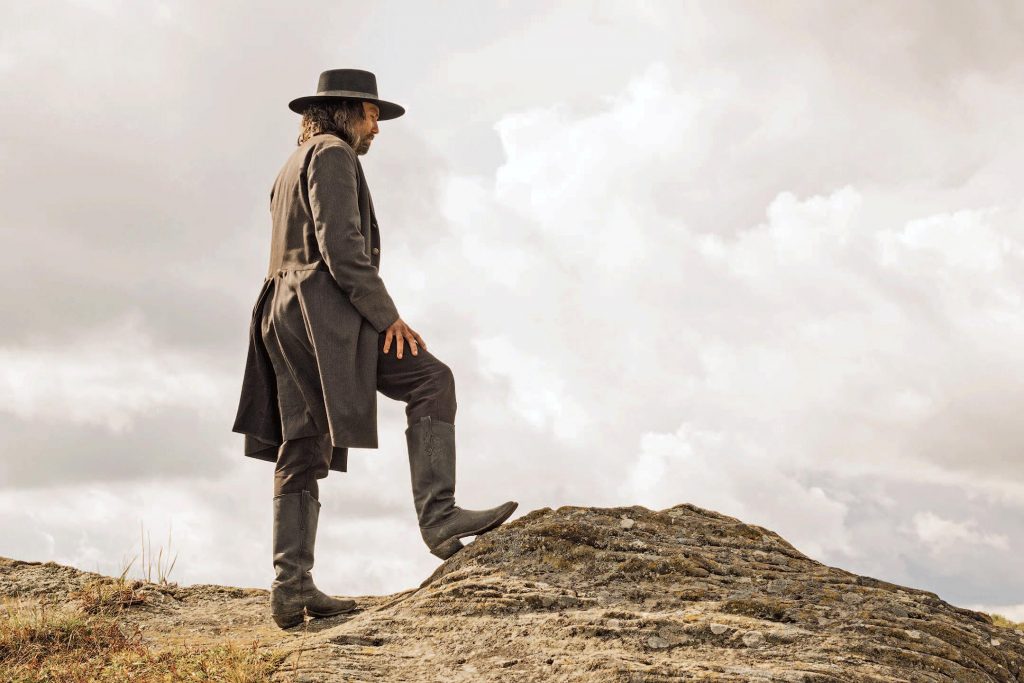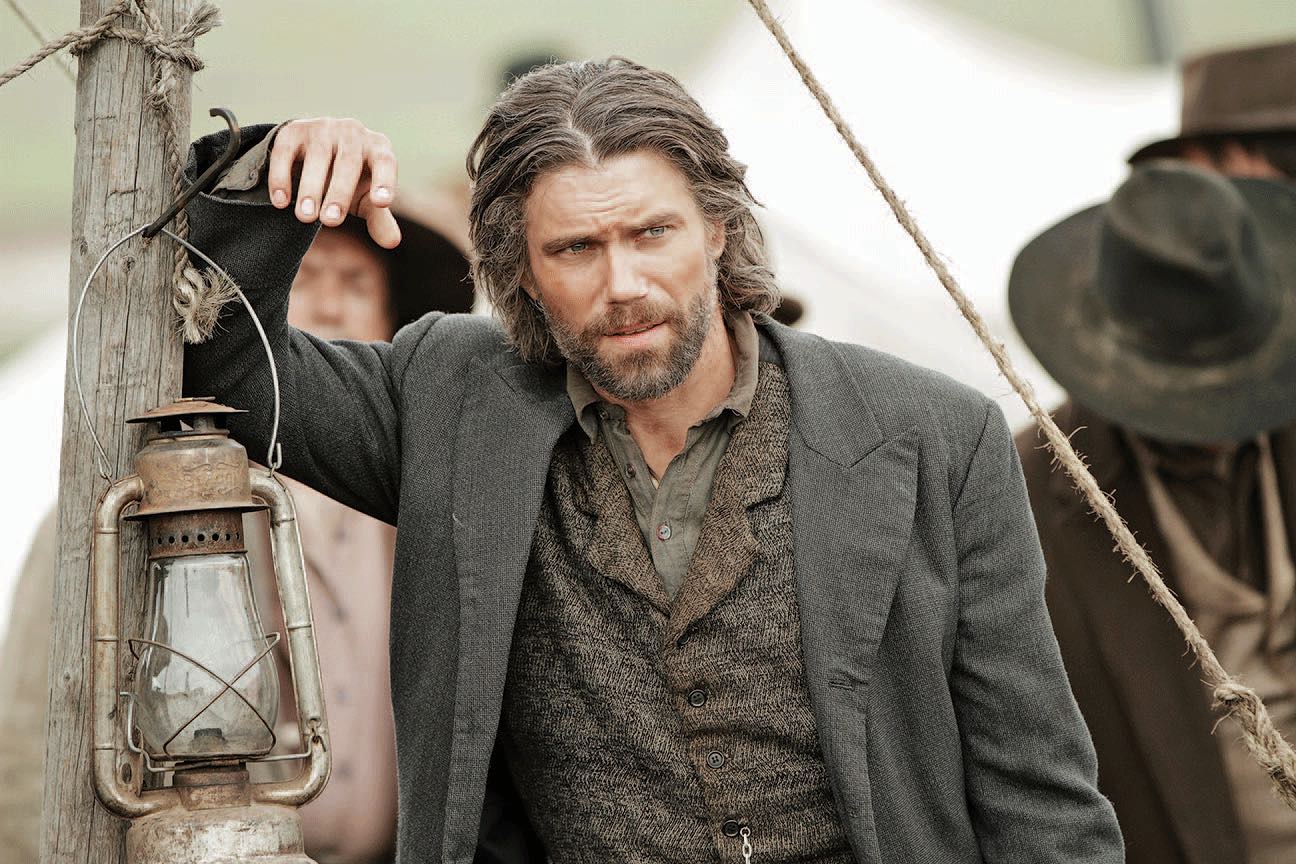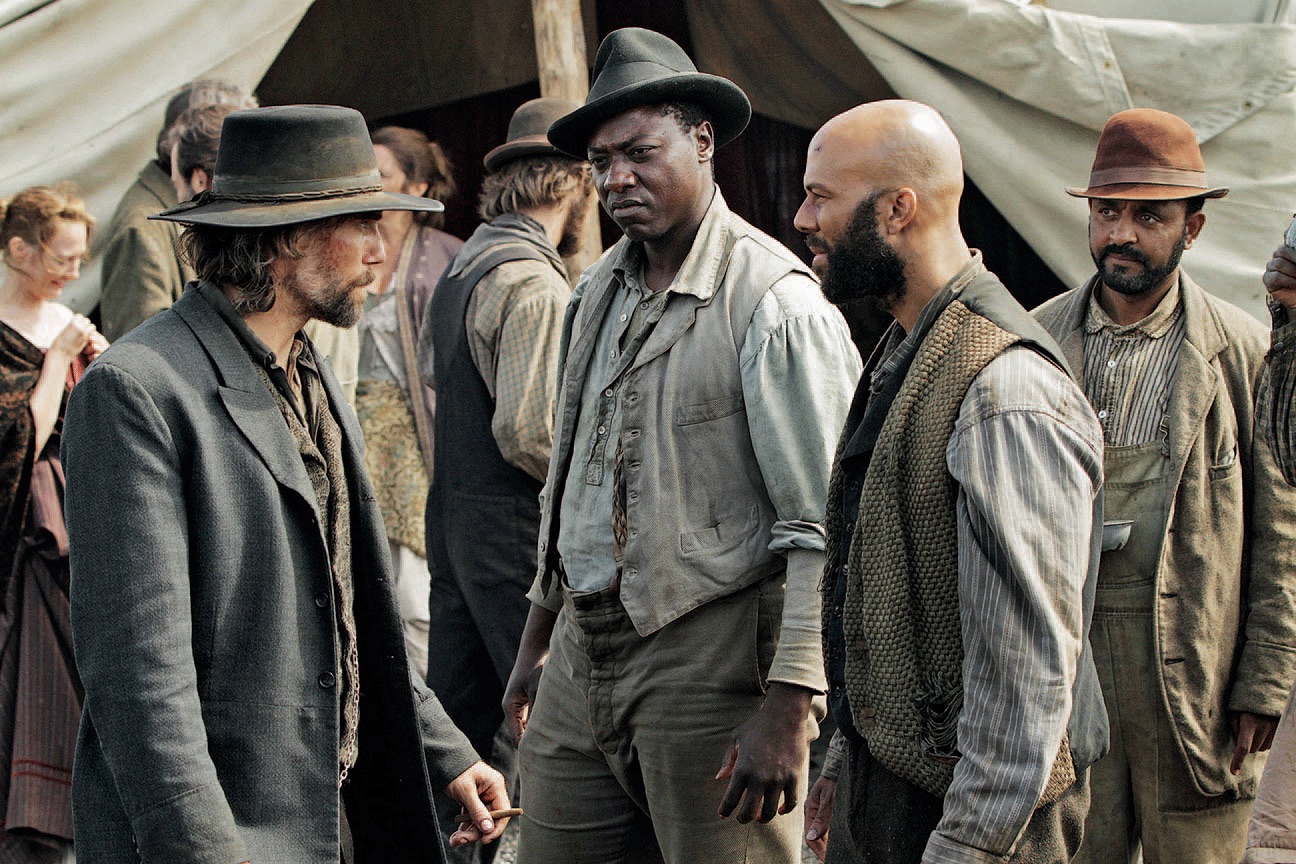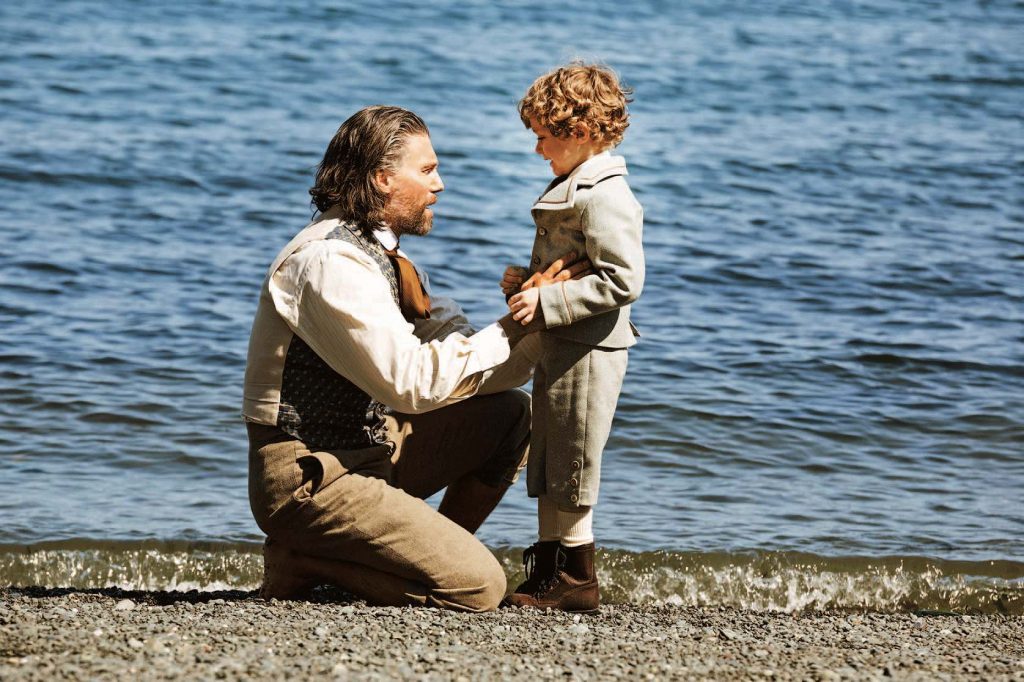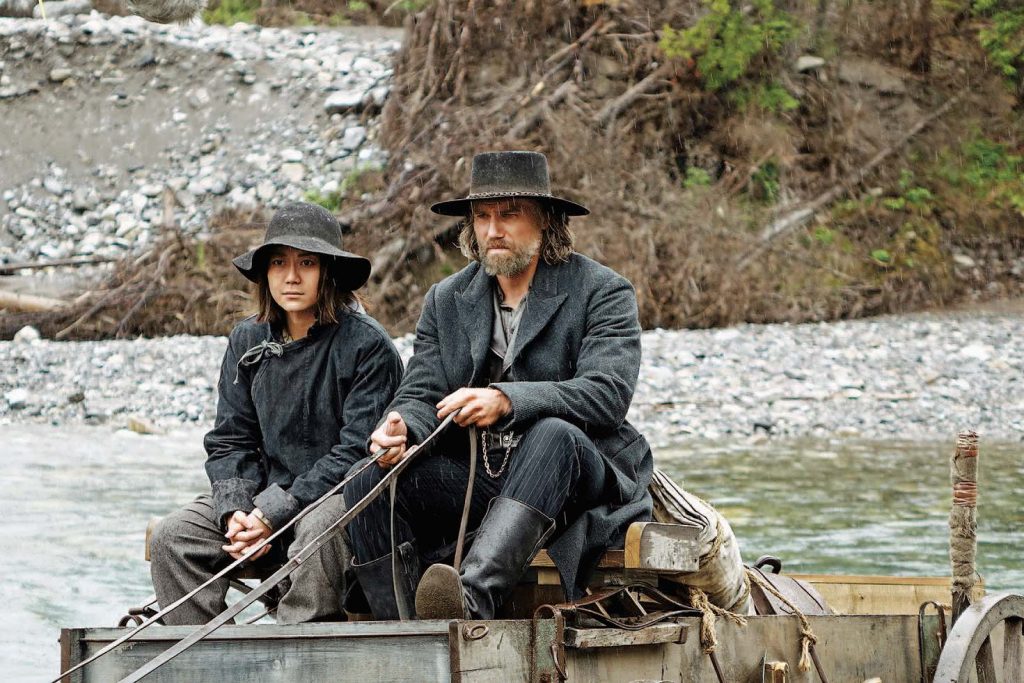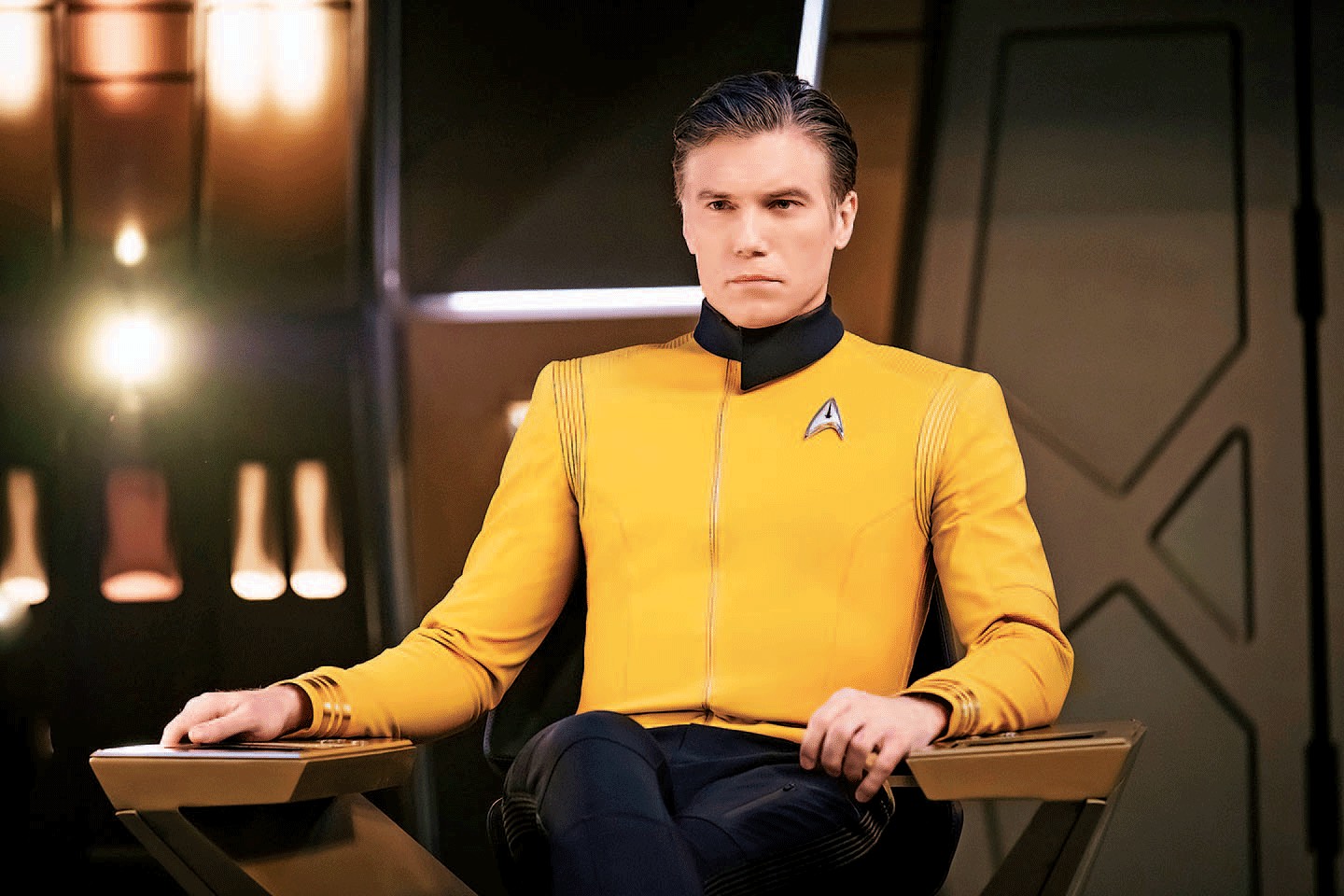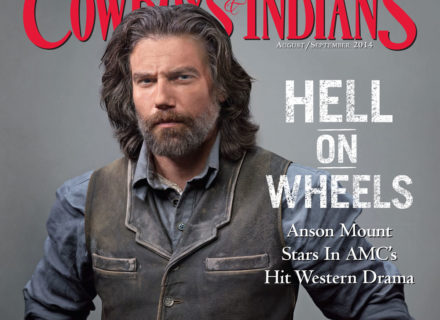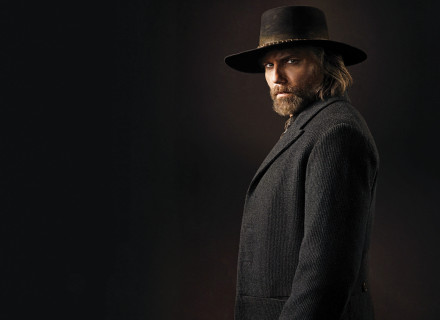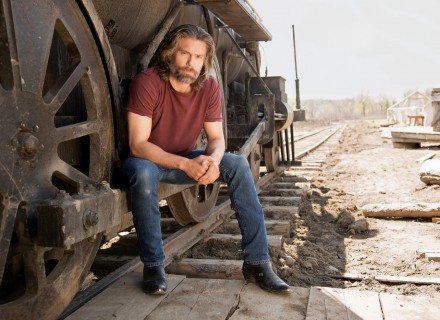Esteemed actor Anson Mount reflects on the joys and heartbreaks of starring in Hell on Wheels, 10 years after the series’ debut.
After a season-long trial run on Star Trek: Discovery to earn his intergalactic bona fides, actor and occasional C&I essayist Anson Mount is ready to blast off again as Capt. Christopher Pike, the pre-Kirk commander of the USS Enterprise, in Star Trek: Strange New Worlds, the upcoming Paramount+ series that continues and expands the mythos spawned more than a half-century ago by writer-producer Gene Roddenberry.
But even as he journeys to the far corners of the universe, Mount knows he will never travel far — in the minds of C&I readers and ardent fans, at least — from the rugged earthscape of Hell on Wheels, the classic 2011 – 2016 TV series that found him perfectly cast as Cullen Bohannon, a Confederate Army veteran who evolved gradually, and often reluctantly, from a man obsessed with avenging the murders of his wife and son to a historical bit player intent on helping construct the Transcontinental Railroad.
During a recent Zoom conversation from Toronto, the filming location for Strange New Worlds, Mount noted that the two series are not exactly worlds apart.
Photography: Chris Large/courtesy AMC
“It’s the reason the first four words of every episode in the original Star Trek show are, ‘Space, the final frontier.’ Gene Roddenberry saw Star Trek as the natural extension of the wagon trains going west. And yeah, to him it was a Space Western. Now it turns out he may very well have been wrong, that space may not be the final frontier. After the original series ended, we’ve gained deeper understanding of multidimensionality and the multi-verse theory. But when I think about that, those ideas, I’m not disappointed, dejected, or feel put upon by the idea that there’s even more to be discovered. I am naturally excited, and I think most other people are naturally excited, by that.
“And I think that there’s something deeply human about that feeling, about that emotion, which is at the heart of not only what Roddenberry was trying to capture about our exploratory nature, but also is what drove the wagon trains west. My favorite Gene Roddenberry quote is, ‘Star Trek speaks to some basic human needs — that there is a tomorrow.’ I think that there’s something deeply human in our need to gather around the campfire and hear a story told together — which is why I think movie theaters will never go out of fashion. And it’s equally human about those of us who need to turn around and walk out of the firelight to see what’s out there in the darkness.”
To commemorate the 10th anniversary of the Hell of Wheels premiere episode, Mount readily agreed to flashback to the epic western drama and share some treasured memories. Here are some highlights from our conversation, edited for brevity, clarity, and flow.
Cowboys & Indians: You already had quite a diverse résumé before Hell on Wheels. But there were no westerns among your IMDb.com credits. Were you surprised when you were offered the role of Cullen Bohannon?
Anson Mount: Well, I’d been asking the universe for a western for a couple of years, so I was like, “Oh, maybe this is the one. Maybe this is it.” But then when I read the script, for me, the genre took a back seat to what the story clearly was about. It appeared to me — and turns out I was right — like it was the beginning of a long-form coming-of-age story about a person with PTSD. At the same time, though, it had all the elements that you’d want an action drama to have. It was just one of the best pilots I’ve ever read, and I knew I wanted to do it immediately.
Anson Mount’s character went through an emotional transformation throughout the run of Hell on Wheels, starting out singularly motivated by personal vengeance and justice, but eventually weaving his way into the workings of the railroad and other plot twists and turns.
Photography: courtesy AMC
C&I: Why do you think you were so eager to do a western?
Mount: I think part of it is, just about every American boy and young American man wants to do a western. It’s our genre. I grew up a fan of westerns. Sunday afternoon after church, it was either a double bill of two old westerns from the ’60s and ’70s, or even earlier, or it was two martial arts films, or it was a western and a martial arts film. And those two genres, they’re very much alike.
C&I: I remember the first time I spoke with you, early in the run of Hell on Wheels. And even then, you acknowledged that the show would not, could not, continue to follow Cullen down a vengeance trail indefinitely, and would move in a different direction. Can you recall the conference you had with the writers where you realized that would indeed happen?
Mount: Yes. I honestly cannot remember who it was with, but there were a couple of different conversations. It was sort of a realization around the formulation of Season 2 that it was becoming a story about somebody that we’d never seen before. The story that had legs was the healing story. So if you keep chasing this guy for revenge — clearly, Cullen has not taken anywhere near the first step towards healing. So they eventually did lay down the track work — no pun intended — to get out of that trap and go down a different road.
C&I: In fact, there was a point where it appeared you and Cullen simply forgot that his original intent was to track down the rogue Union soldiers who killed his wife and son at his plantation before he could make it home from the Civil War.
Mount: Enough time has gone by that I think it’s OK for me to tell you that the original idea that the writers did not share with anyone — and even then, it was only shared with me and Common at the end of shooting Season 1 — was to eventually have the revelation that the last man I was looking for was actually Elam Ferguson. That Elam, Common’s character, had been forced into servitude in a way that he ended up in my house during the killing of my family. Or something like that. I don’t know exactly how it was being formulated. But the idea was that the man I was looking for was actually Elam.
I remember responding to that idea, but I also remember Common being like, “I don’t know, man.” And I was like, “Really? Why?” And he was like, “Something about it just doesn’t ...” And I was like, “Is it because you’re worried about your character?” And he was like, “No, it’s not about that. It just feels kind of obvious in hindsight. It feels like it’s the juiciest possible idea.” And I think he was right. And I think it was the right decision to abandon that idea at a certain point.
Photography: courtesy AMC
C&I: One of the many things that appealed to me about Hell on Wheels is the way characters were able to grow and change and evolve as the series progressed. And not just Cullen and Elam, but people like Colm Meaney’s Doc Durant. They became richer, deeper, more complex characters. And other characters who weren’t intended to be regulars became regulars because they made such strong impressions. Like, Dohn Norwood’s Psalms was originally going to be on for only two or three episodes, and he just became a character that the writers wanted to write more about.
Mount: Well, it also has a lot to do with the actor. The same thing was true of Chris Heyerdahl as The Swede. Originally, he was hired for that one episode, “Immoral Mathematics,” in Season 1. And they saw what he was doing the first day on set, and they’re like, “Oh, we got to have more of this guy.” So young actors reading this, let that be a lesson to you. If you can bring something to the table that makes the writers look better, then they will want to write more for you.
C&I: Do you ever worry that you might not ever get another role as complex as Cullen Bohannon?
Mount: Oh, I’m sure, because I’m getting older. I think it’s bound to happen. I’m hoping that we can get Captain Pike to the point where he is as complex. I miss Hell on Wheels for a lot of reasons, but I know that if I was still doing it, obviously, I’d be sick of it by now. My life is more complex, but it’s also richer. I’m about to become a father.
Photography: David Bukach/courtesy AMC
C&I: Congratulations. You are about to start one of life’s great adventures.
Mount: Thank you. Yeah, I definitely am. When we finished Hell on Wheels, the best and simplest way I could describe it to people when they would ask me about it was, “That’s a chapter. That’s a chapter.” This is the first time in my life where I see something coming down the road and I can say definitively, without question, “This is the next chapter.”
C&I: Well, I guess you could say Cullen Bohannon was the right role at the right time for you. And now is the right time for you to be a father.
Mount: Yeah, I think so. And I think it’s fortuitous that I’m playing Pike at the same time. There’s something fatherly about that figure that I’m trying to explore. But you know what? That reminds me of something. You asked me a while ago to come up with my list of favorite [Hell on Wheels] episodes, and I’ve been trying to figure out if the reason that I did not do what you asked is because I’ve been ridiculously busy finishing the season [of Strange New Worlds], or because I didn’t want to. And I think that the honest answer is that I didn’t want to, because it just never felt right. Because it’s like asking me to pick my favorite child. And I know it’s just such a cliché thing to say, but it’s true, because I love the entire series. We poured our hearts out in every episode and it would feel almost wrong to say, “These are my favorites.”
But what I did do is start thinking about what are the moments of filming that pop up in my memory. And the first one that popped up — and what we were just talking about reminded me of this — is “Revelations,” Episode 7 in Season 1. When Elam and I are on the run and we’re around a campfire, and he’s turned his back to me and I’m half-drunk talking about discovering the body of my son. And I have this really long story I tell. And we were feeling really good about where the scene had gotten to. And between setups, we just stayed around the fire because it was the most comfortable place in that field. And Common rolled over and looked at me across the fire and said, “That’s good work, man.” I said, “I’m just talking about my father’s death.” In my mind as an actor, the words are the words. But in my mind as an actor, what I was doing was, I was thinking about my father’s death. And I told Common that.
And Common got really still, and looked at me. He said, “I knew that’s what you were doing. How did I know that’s what you were doing?” I said, “I don’t know, man.” But from then on, we always talked about that. And it was a very odd moment for us, but it was the moment that allowed him and I to realize that we were jelling as well as two actors could jell. And it’s a precious memory. Definitely.
Photography: Chris Large/courtesy AMC
C&I: I fully realize that you and Common are actors, and you’re professionals, and you’re only playing roles, and blah, blah, blah. But how difficult was it for you to film that scene in Season 4 — in “Elam Ferguson” — when Cullen had to shoot Elam to put him out of his misery?
Mount: Well, it reminds me of this story that director David Von Ancken always talked about when he was working with Pierce Brosnan on the western Seraphim Falls. One day they were getting ready to shoot and he was watching Pierce making a notation on his script. And he kept writing these initials next to certain lines: N-A-R, N-A-R, N-A-R, N-A-R. And David asked, “What does N-A-R mean?” And Pierce said, “Well, in this scene, my character is cold. I’m cold. He’s afraid for his life. This is a very dangerous place. I’m afraid for my life. So — no acting required.” And it was sort of like that on “Elam Ferguson.” I didn’t really have to work too hard to figure out the as-ifs in those scenes because we were all mourning the loss of Common. It was clear he had other things he wanted to go on to do, and he had our blessings. But it was still a death.
And later, I remember very clearly showing up to do the burial scene, which was just me and a box. It’s one of those moments where you’re like, “I know what I have to do. I have no idea how I’m going to do it.” And when [director] Rod Lurie and I talked about it, I was like, “Can you just let the camera roll? I think I’m going to have one shot at this.” And that’s the shot that ended up in the episode, that last pull-away. What I figured out about the scene was, well, you learn to listen to the little birdie as an artist. And that day, the little birdie said, “He has to throw up.” Now as a younger actor, I would have ignored the little birdie because that’s nonsense. But since then, I’ve learned you’ve got to listen to the muse, right? So I was like “Oh! Oh, of course!”
Because it has been so long. And Cullen’s so scarred. The scars are so thick that it’s been so long since he’s actually had an emotional response to something — he doesn’t recognize it. And he thinks it’s nausea at first, which is why it looks like I’m about to throw up at the beginning of that shot. And then it slowly turns. And doing that sort of early heaving is what allowed my body to get to the place where I actually was sobbing. And after the shot finished, I had to walk off in the field and keep crying for a while. That’s not normal for me. I’m a fairly pragmatic actor. But that was one of those where everything just kind of clicked.
Next year Mount will return to the character Christopher Pike in a new spinoff series, Star Trek: Strange New Worlds, on Paramount+
Photography: courtesy CBS/Paramount+
C&I: Of course, Cullen finally was able to make a redeeming human contact with Mei, played by Angela Zhou. And in the final episode, we see him following her to China, in hope of a reconciliation. Have you ever thought of doing something similar to what the producers of Deadwood did, and filming a TV movie to wrap up the Hell on Wheels narrative?
Mount: I don’t know. It doesn’t feel right. I think Cullen has earned his rest. I’m not sure I would want to try and tack anything on to what we did, because it’s of a particular place in our lives and in television.
C&I: Well, that’s probably a good idea. Because if you ask 50 different fans of the show what finally happened to you and Mei and everyone else in the Hell on Wheels universe, you’d probably have 50 different sets of theories or wishes or hopes. And you know what? We’re all right.
Mount: Exactly. We can never top what’s in people’s imagination. For what it’s worth, I don’t really know what happened. I think each one of those theories is true. And besides, it’s not about me. It’s about our audience and it’s about Cullen. Yeah, I’m content for Cullen to go on living in the multi-verse
Watch the complete series of Hell on Wheels on AMC’s streaming platform and other major streaming rental services. The complete series DVD set is available on Amazon. Star Trek: Strange New Worlds is expected in 2022 on Paramount+.
Photography: (Cover image) from a collaborative shoot by Moon Gang and Uni Eugenia So
From our October 2021 issue






